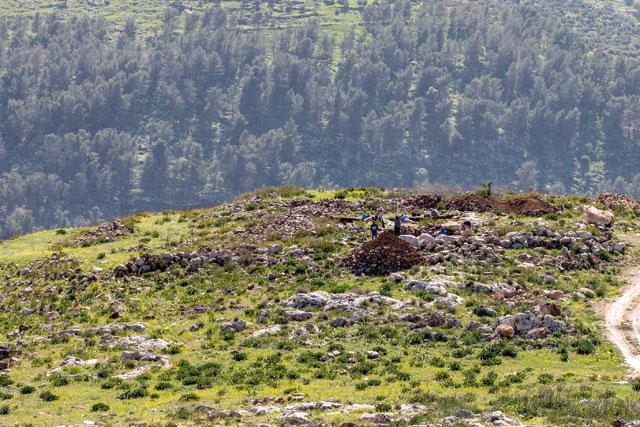- Local News
- Mon-2020-07-27 | 03:53 pm

"The archaeo-botanical record was compelling. Tiny fragments of charcoal found in the soil represent the remains of wood that people brought to the site to burn as fuel,” said James Fraser, a curator of Ancient Levant and Anatolia at the British Museum in a recent e-mail interview with The Jordan Times .
Using a scanning electron microscope, Caroline Cartwright, a researcher from the British Museum, identified the species of each sample by examining its anatomical structure from different angles, Fraser said.
The scholar added that they learnt from other excavations that people in the Bronze Age farming villages typically burned a variety of wood species gathered from around the site.
"This pattern suggests that, like farmers today, Bronze Age people pruned their olive trees as part of the harvest and stockpiled the wood for fuel,” Fraser noted.
The discovery of miniscule fragments of crushed olive stones, known in Arabic as "jift”, directed researchers to conclude that olives had been crushed for oil at Khirbet Um Al Ghozlan.
"The fact that they were charred indicated that, once pressed, the ‘jift’ had been collected and burned as fuel. Several limestone mortars excavated in and around the storehouses were probably used to crush the olives into paste,” the archaeologist reckoned.
He said that the crushed paste was probably pressed in one of six olive presses found hewn into the limestone bedrock nearby.
Each comprised a rectangular basin into which mats laden with the crushed olive paste would have been pressed under heavy stones. The oil would flow through a circular channel into a storage jar nestled into a collection tank below, Fraser said.
"At least 23 complete-but-broken storage jars lined up in several rooms”, the scholar noted regarding the storage of olive oil at the site.
Eighty-three per cent of all the pottery sherds found at the site were from storage jars.
"This is a strikingly high proportion, as we would normally expect other types of domestic vessels to be well represented, including cooking pots, bowls and jugs. We hope to analyse these jars to try to detect residues of their contents. If we can identify lipids associated with vegetable fats, then they were probably used to store olive oil,” Fraser concluded.









